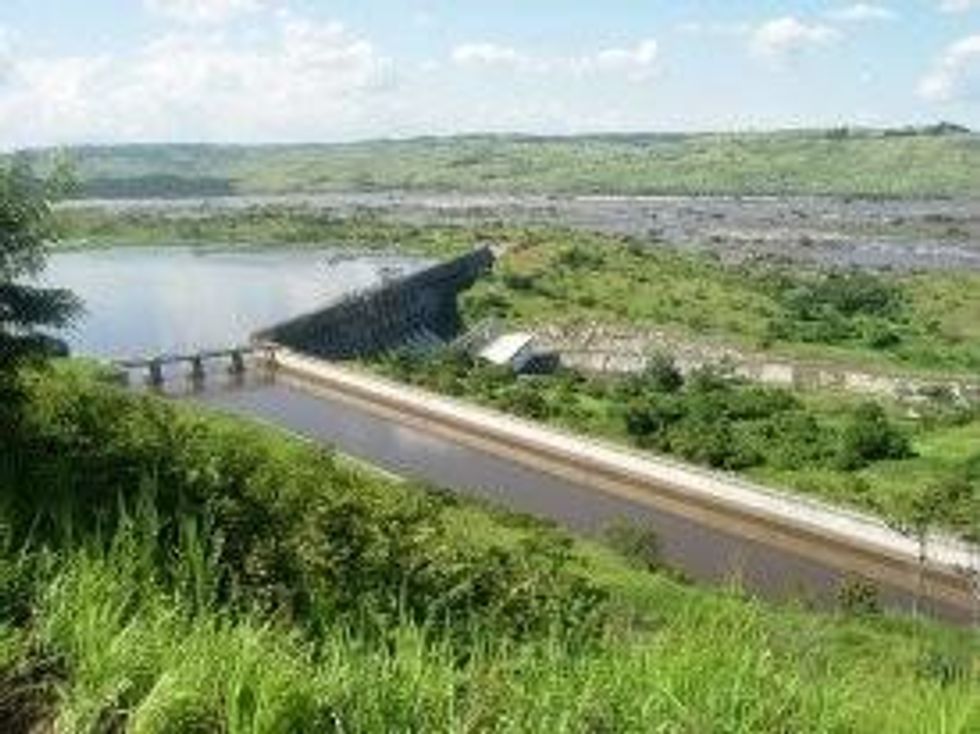South Africa's President Jacob Zuma launched the COP 17 climate meeting in Durban last week with a speech on the potential for green energy to help build economic growth in South Africa. In a land blessed with huge potential for solar, wind, energy efficiency and other green energy sources, Zuma chose to highlight Africa's biggest dam, the Grand Inga, on the Congo River. South Africa and DR Congo had signed an agreement to build the massive dam just days prior to the COP meeting.
Zuma's announcement to move forward with Grand Inga was met with great fanfare by delegates inside the official meeting at Durban. The idea that one project could generate 40,000 megawatts causes understandable excitement, and feeds into the notion that Africa will see the end to its energy woes as a result of this one development. If only that were true.
The impact of climate change on the continent of Africa is already becoming overwhelming. The current
drought in the Horn of Africa has caused prolonged consequences that include
reduced hydropower generation. At COP-17, South Africa's minister Ms. Maite Nkoana-Mashabani, incoming president of the body behind the COP meetings, made a call for each person and country to take steps to cut carbon emissions, conserve energy and explore green energy alternatives. The Grand Inga project represents the opposite of the steps proposed.
It is virtually a certainty that the Grand Inga project will not address the widespread energy
poverty that afflicts the DRC and Africa more generally. It is not a secret that the electricity is earmarked for South Africa and large industrial developments such as BHP Billiton's Congo operations. Getting power from the main transmission grid to the local communities is very costly and makes electricity from such a project unaffordable for the poor. We are advocating for truly green energy sources that can be built closer to where people need it, to address the needs of the majority population. In no way will Grand Inga bridge the energy gap suffered by Africa.
I attended COP for International Rivers with the intent of sharing the message that it's the wrong climate for damming rivers. Africa in particular is at risk of failed projects and worsening poverty if it undertakes a dam boom on its rivers - rivers that provide basic life support for millions. The continent has very unpredictable precipitation and water flows are very variable. Just to look at President Zuma's example of Grand Inga, 40,000 megawatts is based on maximum flows - flows that cannot be guaranteed. The continent already suffers from a great dependence on hydropower, an over-reliance that has already proved to be very disruptive when droughts and floods hit - as they are doing with increasing frequency and vigor.
The $80 billion Grand Inga will block and divert one of the world's biggest rivers. Altering the river flow could affect an important global carbon sink . The damming will reduce the nutrient flow required by marine organisms (diazotrophs) that use nitrogen and carbon from the air to make
organic carbons that sink to the ocean floors. Some ongoing studies indicate that damming the Congo River will create a huge reservoir that emits greenhouse gasses, thus worsening climate change. Hence President Zuma's "green energy" description of Grand Inga could prove to be completely wrong.
Until proven otherwise we will continue rallying our message to decision makers and those at COP 17 to save our rivers and acknowledge the risks of huge hydropower projects in a time of an increasingly unpredictable climate. We will strongly advocate for energy plans and policies that take into account impacts of climate change, that enable citizens to benefit from new energy developments, and that protect rivers and the ecosystems that millions of Africans depend on.




